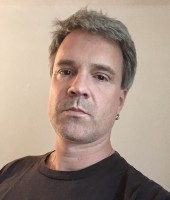Johannes Jaeger
"Jean d’Alembert" Paris-Saclay – IEA de Paris Research Chair
Johannes Jaeger is a philosopher of science and a systems biologist with a transdisciplinary track record. His research, first as an empirical group leader, later as the director of an institute for the philosophy of biology, has always focused on a process perspective on the organism and its evolution. He is interested in fundamental questions such as the limits of (genetic) reductionism, dynamical systems modeling, and mechanistic explanation in biology. His current projects deal with the use of models as epistemic tools, with causality and control in complex adaptive systems, and with the homology of developmental processes. In recent years, he has also developed an interest in promoting open science and in understanding the epistemology of open inquiry and innovation. He now holds the “Jean D’Alembert” research chair 2020/21 appointed by the IEA de Paris in collaboration with Université Paris-Saclay. In addition, he is currently contributing to the EU Horizon 2020 research project Crowd4SDG (“Citizen Science for Monitoring Climate Impacts and Achieving Climate Resilience”).
As a freelance academic, Johannes Jaeger also offers an introductory course in the philosophy of science for researchers, and a course on the philosophy of creativity (in collaboration with Parisian artist Sépànd Danesh), which he has been teaching at various international research institutes over the past few years.
Research Interests
Epistemology of Open Science, Mechanistic Explanation in Biology, Models as Epistemological Tools, Causality and Control in Complex Adaptive Systems, Process Perspectives on Evolutionary and Developmental Biology.
Open Science – Philosophical Foundations, Open Inquiry, and Radical Innovation
Humanity is now facing a number of extraordinary societal and ecological challenges. Tackling these challenges requires a transition from an exploitative and hyper-competitive model of science and society to a more sustainable and collaborative one. In the turbulent times to come, humanity will have to make a number of urgent, difficult, and wide-ranging decisions. These decisions should be based on the best scientific knowledge we can get—relevant, adaptive, and flexible, yet robust. They should be broadly supported by a scientifically literate public to enable effective and positive policy outcomes. Unfortunately, it is not at all evident how to set up an academic and societal intellectual eco-system that enables the radical innovation and profound change required without losing stability and accountability in the process. The open science movement attempts to implement such a system. It is rapidly gaining traction and influence with backing from many national and supranational funding bodies. The overall aim of this project is to elaborate the philosophical foundations of open science and to identify the conditions that support its implementation in practice. First, this research project intends to develop an epistemological foundation for open science that appreciates diversity, flexibility, adaptivity, and robustness based on a processual perspective on scientific inquiry. Second, it will probe the limits of rational planning and prediction for scientific innovation focusing on the role of individual learning and creativity in open inquiry and radical innovation. Finally, it will examine the circumstances under which open inquiry thrives, and will use installation theory to suggest leverage points for redesigning research practices and education.
|
Intervention de Johannes Jaeger dans le cadre du webinaire CoAct, fondé par le programme Horizon 2020 de l'Union européenne Communication by Johannes Jaeger, Paris IAS Fellow, within the framework of the Paris-Saclay University Open Science committee meeting Séminaire hebdomadaire interne |
|
|
|
|



